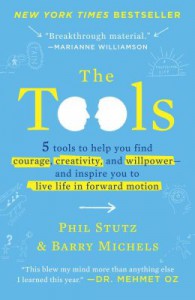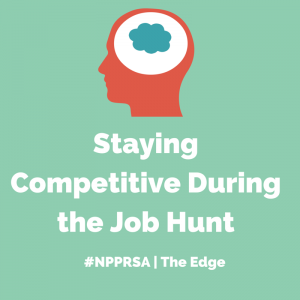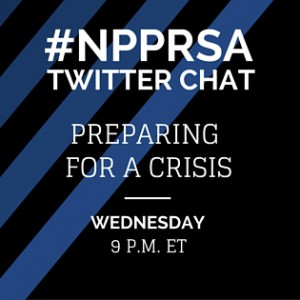 It’s graduation season again, which for many of us new PR pros, brings back nostalgic memories of communication classes, senior year internships and fun weekends with college friends. While it’s easy to get caught up in our busy list of client deliverables and hectic calendar, it’s important to take a step back from the grind to gain perspective from those who are more accomplished and seasoned.
It’s graduation season again, which for many of us new PR pros, brings back nostalgic memories of communication classes, senior year internships and fun weekends with college friends. While it’s easy to get caught up in our busy list of client deliverables and hectic calendar, it’s important to take a step back from the grind to gain perspective from those who are more accomplished and seasoned.
The following graduation speeches resonate with me, even as a young professional, and include many nuggets of wisdom applicable to PR pros.
1. Maria Shriver, University of Southern California’s Annenberg School, Commencement Ceremony 2012
“I hope if you learn anything from me today…you remember the power of the pause. Pausing today and throughout your entire life allows you to take a breath…to take a beat…to be in the moment. As everybody else is running around out there like a lunatic, I dare you to do the opposite.”
This speech is fantastic, and tailored specifically to communication professionals-to-be. Shriver talks about our world’s obsession with the next thing, and failure to enjoy the present. PR pros are by nature, fast-moving, outcome-driven individuals.
While ambition and a forward-thinking mindset set you up for success, mindfulness is so important in both our personal and professional lives. If you don’t pause to enjoy the present, you will burn out, and run through your life and career in a daze. It’s important to structure your time to create room for pausing.
Stop obsessing about your next project, client, or promotion, and just enjoy where you are at the moment. There’s a quote that I love, “Wherever you are, be all there” (Jim Elliot). Put down your phone, turn off email for the night, log out of social media – and enjoy your present.
2. Sutton Foster, Ball State University Commencement, 2012
“No job should be too small for you. Say yes. Get coffee for people, run errands, make an impression as a hard worker, someone who is willing…and when the opportunity arises for you to show people what you got, show ‘em. Who knows what can happen.”
Great advice for new PR pros. Entry-level PR work isn’t always the most glamorous or fun, despite what non-PR pros believe. Within your first year at a PR job, you will likely need to act as a photographer’s assistant at an event, jotting down names. You will spend hours researching media lists, and completing basic research in general. You may even need to wear a client mascot costume at a media event.
By volunteering to do the grunt work that no one else wants to do, and stepping in as a team player, your coworkers will appreciate you, and it will ultimately advance you more quickly. Working hard and being kind does make a difference, and it’s easy enough to put into practice at work.
3. Judy Smith – Boston University College of Communication Convocation
I’m a bit biased here – this was my College of Communication graduation speech. It’s not the most polished speech, but it spoke to me two years ago as a fresh college grad, and speaks to me today as a PR new pro.
Smith’s first piece of advice is, “Be prepared…you don’t really know when opportunity is going to appear.” Simple, but so true. Two years ago, I wouldn’t have thought I would be where I am today. Almost all of my friends would say the same for their careers. Seizing opportunity and readjusting plans accordingly is such an important skill.
Smith also advises, “You’re going to make mistakes. Learn from them; don’t feel like you have to know it all.” New PR pros are motivated and hardworking, but have a lot to learn. I hate making mistakes, and take great care to avoid them. But I’ve grown the most professionally from the few mistakes I have made in my career. Own up to your mistakes, and grow from them. Hopefully, like me, you are in a work environment that embraces this mentality and supports you as you grow professionally.
If you’re looking for more grad speech inspiration, NPR has curated the best commencement speeches here – you can search by themes, speaker name, school or year.
Do you have a favorite grad speech, or applicable words of wisdom? Comment below!
 Lauren Leger graduated from Boston University with a bachelor’s degree in communication, concentrating in public relations. She started her career while still in college at Boston-based PR firm, Zazil Media Group. Lauren relocated to Dallas, Texas in fall of 2014 and began working at The Power Group as a PR account executive. She recently took on a new role as Power’s manager of digital strategy, where she brings her PR expertise to the digital realm of the business. Connect with her on LinkedIn and Twitter.
Lauren Leger graduated from Boston University with a bachelor’s degree in communication, concentrating in public relations. She started her career while still in college at Boston-based PR firm, Zazil Media Group. Lauren relocated to Dallas, Texas in fall of 2014 and began working at The Power Group as a PR account executive. She recently took on a new role as Power’s manager of digital strategy, where she brings her PR expertise to the digital realm of the business. Connect with her on LinkedIn and Twitter.
 As the first half of the year comes a close, I began looking for inspiration to accomplish my goals for 2015. “The Tools: 5 Tools to Help You Find Courage, Creativity, and Willpower, and Inspire You to Live Life in Forward Motion” is the perfect book to help you finish what you’ve started in 2015.
As the first half of the year comes a close, I began looking for inspiration to accomplish my goals for 2015. “The Tools: 5 Tools to Help You Find Courage, Creativity, and Willpower, and Inspire You to Live Life in Forward Motion” is the perfect book to help you finish what you’ve started in 2015. Victoria Lightfoot graduated from Georgia State University in 2012 with a Bachelor of Arts in journalism, concentrating in public relations. She is currently the PR coordinator at the Atlanta Convention & Visitors Bureau and volunteers on PRSA Georgia’s College Relations Committee and co-chairs the Travel & Tourism Special Interest Group. Connect with Victoria on LinkedIn and Twitter (@Victoria_Lenese)
Victoria Lightfoot graduated from Georgia State University in 2012 with a Bachelor of Arts in journalism, concentrating in public relations. She is currently the PR coordinator at the Atlanta Convention & Visitors Bureau and volunteers on PRSA Georgia’s College Relations Committee and co-chairs the Travel & Tourism Special Interest Group. Connect with Victoria on LinkedIn and Twitter (@Victoria_Lenese)








